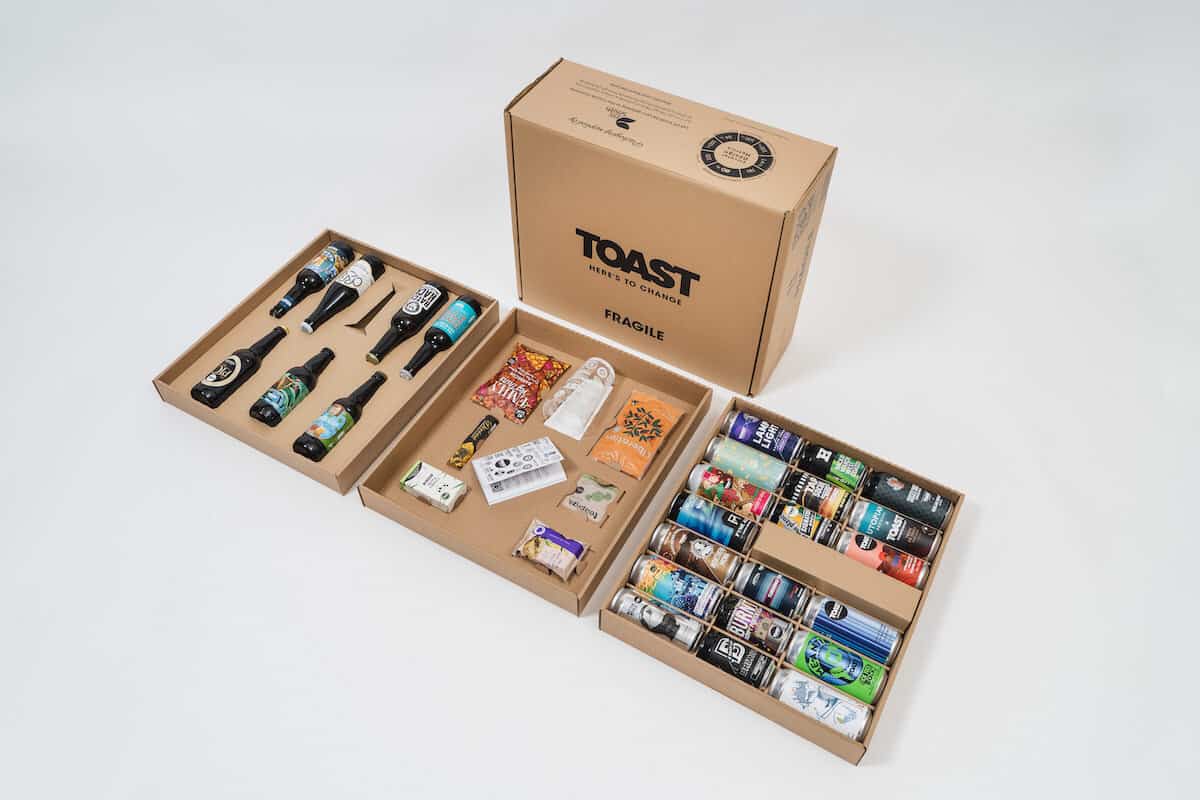Packaging companies are responding with innovations, both to consumer concern about environmental sustainability and as the United Nations Cop26 Climate Change conference in Glasgow approaches.
The FutureBox
Luxury packaging company Delta Global says its FutureBox is the “ultimate luxury box for the future of our planet”. The Leicester business provides packaging for clients including Net-a-Porter, MatchesFashion and Tom Ford. The FutureBox uses no tape, folds flat and is easy to put together, making it easy to recycle. It uses FSC (Forest Stewardship Council) accredited materials, and does not use magnets for secure closure.
Robert Lockyer, chief executive of Delta Global says, “COP26 will see world leaders leverage the post-pandemic rebuild as way to accelerate eco-friendly policy making. It is less likely that sustainability efforts will rely on good will but will be led by laws and policies that require luxury brands to meet environmental standards.
“The FutureBox makes it easy for brands to meet these standards and flourish in this new economy.”
Boxes can be tailored to meet brand requirements and sustainability goals, since foiling or water-based finishes can be incorporated.
Delta Global says the fact that both Gucci and Burberry have also le by removing plastic lamination from their boxes will set the standard for other luxury brands. It also cites a Deloitte report on consumer attitudes towards sustainability that suggests 28% of respondents stopped buying certain products due to environmental concerns. In the future, this is likely to increase, with 45% of Gen Z, now becoming part of the workforce, stopping purchases from brands they consider environmentally unethical.
Circular Design Metrics in practice
DS Smith says it has produced the first box using the Circular Design Metrics that it developed last year in collaboration with the Ellen MacArthur Foundation. It has made a 100% recycled and recyclable box for ToastAle’s Cop26 initiative to reduce food waste. The packaging will be used as part of The Companion Series, a limited-edition collection of beers brewed with surplus bread to prevent food waste. The initiative aims to reduce food waste, at a time when a third of the world’s food is never eaten, wasting the resources that are used to produce it.
Dave Ellerington, head of design and innovation and business development at DS Smith Packaging UK & Ireland, says: “Design is one of the essential elements of the Circular Economy and we are thrilled to put our design principles and unique circular design metrics into practice for the first time, in the FMCG industry.
“By employing these metrics, the figures show how well-designed packaging can be pivotal in reducing overall environmental impact, helping companies in a wide range of sectors to reduce waste and pollution, keep materials and products in use for longer and have a clear view of their packaging designs circularity performance to deliver on their sustainability promise.”
Adam Platts, director of sales, marketing and innovation at DS Smith Packaging, UK & Ireland says: “We’re incredibly proud to be partnering with Toast Ale on its important initiative to reduce food waste, and the partnership is testament to our commitment to supporting the drinks industry with their sustainability targets and accelerating action towards to goals of the Paris agreement and the UN Framework convention on Climate Change.”









